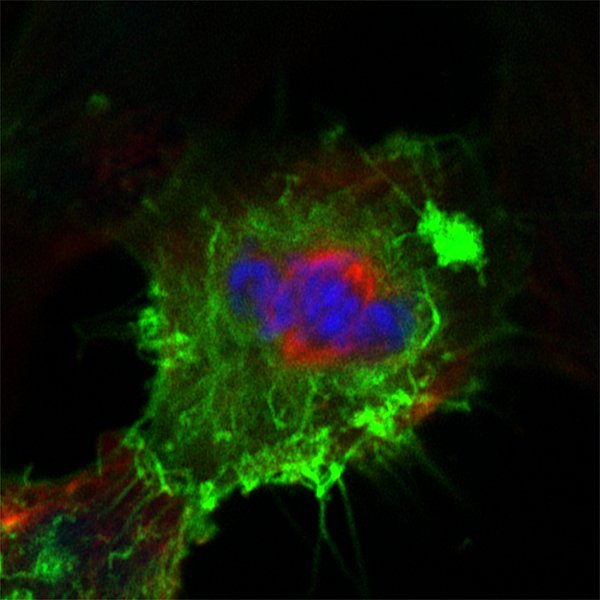The Hopp Children's Cancer Center Heidelberg (KiTZ) is a joint institution of the German Cancer Research Center (DKFZ), Heidelberg University Hospital (UKHD), and Heidelberg University (Uni HD).
Ewing sarcomas are malignant bone or soft tissue tumors that occur primarily in children, adolescents, and young adults. They usually develop as a result of the fusion of certain genes in the genetic material of the tumor cells. Until now, it was assumed that Ewing sarcomas were genetically relatively “uniform” compared to other cancers because they show few changes. Nevertheless, the diseases progress very differently; some patients respond well to certain therapies, while in others the cancer progresses aggressively despite treatment.
The new findings show that an extra copy of chromosome 8 plays an important role in very aggressive forms of Ewing sarcoma. This change is found in about 50% of all Ewing sarcomas and is associated with a poorer survival rate, as shown by a study conducted by the Hopp Children's Cancer Center Heidelberg (KiTZ), the German Cancer Research Center (DKFZ), the National Center for Tumor Diseases (NCT), and Heidelberg University Hospital (UKHD). The research team led by Thomas Grünewald, research group leader at KiTZ and DKFZ, correlated gene activity on chromosome 8 in tumor samples from over 200 patients with the course of their disease. The EIF4EBP1 gene on this chromosome appears to be a particularly important driver. When it is particularly active, tumor cells grow faster and more aggressively.
This was also demonstrated by molecular genetic and protein analysis of the tumor samples: the additional chromosome 8 in the cancer cells causes these cells to produce more of the protein encoded by the 4E-BP1 gene. When the researchers switched off the gene in Ewing sarcoma cells, however, this led to a significant slowdown in tumor growth, both in cell cultures and in mice. At the same time, tumor cells with high 4E-BP1 levels were more sensitive to certain targeted cancer drugs.
“The results could therefore also help to develop new targeted therapies for this group of patients in clinical trials,” says Thomas Grünewald. Chromosome 8 also appears to be a promising biomarker for assessing which patients are at higher risk of aggressive disease progression and who could potentially benefit most from treatment with the appropriate drugs.
Original publication:
C. M. Funk et al. High 4E-BP-1 expression associates with chromosome 8 gain and CDK4/6 sensitivity in Ewing Sarcoma. In: Journal of Clinical Investigation (online publication October 16, 2025) DOI: 10.1172/JCI187627




